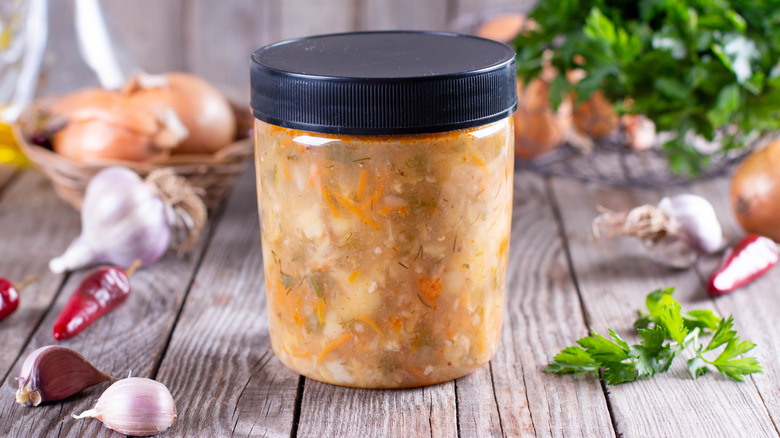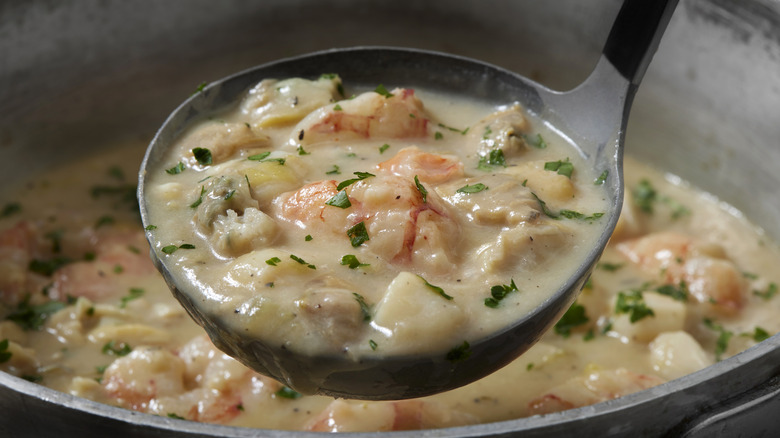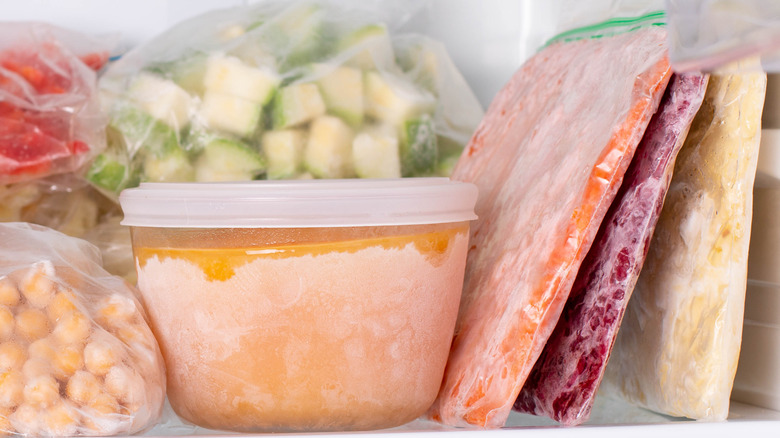How To Freeze Soup So It Tastes Just As Good As When You First Made It
When it comes to freezing homemade meals to enjoy at a later date, some foods work better than others. Luckily, a warming, comforting soup is typically one of them. Soup is a great choice for a make-ahead meal: It can be cooked in a large batch, it freezes well, and it's easy to reheat on the stove.
But there are several things that factor into how well that soup will freeze and how good it will taste once you're ready to eat it. If you want your favorite Tuscan White Bean or Mexican Meatball soup to taste just as delicious as when you first made it, there are some key tips to keep in mind — both before and after you freeze it.
Perhaps the most important factor is what kind of soup you make, because not all soups are created equal when it comes to freezing well. Once you choose the right kind of soup, what container you put it in, how you store it, and how long you freeze it all make a difference.
Types of soups you shouldn't freeze
Most soups will generally freeze well and thus taste good on the other side, but there are a few ingredients that don't freeze as well as their soup recipe counterparts. For example, certain starches are more prone to absorbing liquid and turning out mushy or soggy, while most dairy products tend to separate or change in texture once reheated.
Making sure your soup freezes well is simply a matter of avoiding a few culprits — namely milk or cream, cheese, white rice, pasta, and cubed potatoes. Seafood is usually best avoided as well since its texture doesn't always hold up when it's frozen and then thawed.
Pretty much everything else is fair game: broth-based soups, bean soups, meat-filled soups, and puréed soups all freeze great. And if you want to include any of these "problem" ingredients, there are ways around it. For example, wild or brown rice holds up better than white, and if you purée the potatoes they'll keep better. Or you can simply leave any of these ingredients out of the recipe and add them in once you reheat the soup.
Containers and storing tips for freezing soup
Once you make a soup that you know is set up to freeze well, it comes down to choosing the right containers and storing it properly to avoid freezer burn and make sure your soup thaws, reheats, and tastes great. Soup is best frozen the day it's made and can last in the freezer for up to three months.
While an air-tight container will work, the most efficient container to freeze your soup in actually isn't a container at all — it's a ziploc bag. By storing your soup in tightly sealed ziploc freezer bags, you can not only portion out the soup however you'd like, but the soup freezes flat so you can layer the bag and save on freezer space.
To properly package your soup once it's made and cooled, ladle it into your ziploc bag and don't fill it all the way (since liquid expands when frozen). Be sure to get as much air out of the bag as possible before you seal it, and don't forget to label so you know when the soup was made.



